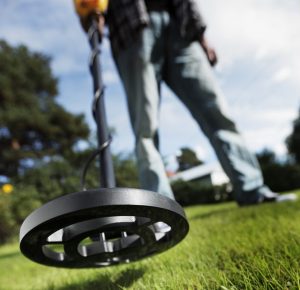Beginners Guide To SEO For Your Website
Have you ever been Googling something and wondered why certain websites were at the top of the Google results page and why some sites are near the bottom? Well, the answer is at least partially related to SEO.
SEO stands for ‘search engine optimization’ and a website’s SEO determines just how well it will rank on Google. In other words, how high up the link will show on the results page for a specific search term.
SEO affects every website on the internet and, if you own an online business, you need SEO for your website.
FREE Checklist: SEO For Beginners
Search Engine Optimization Basics

In broad terms, the definition of SEO is all the actions you can take to make your website rank higher on search engines like Google, Bing or Yahoo. You can implement many SEO tactics yourself, or you can hire an organic SEO strategy consultant to work on it for you.
SEO for your website can refer to the process of putting appropriate keywords and phrases on your web pages. It can also refer to the process of getting things called “backlinks” for your website. It can also encompass things like making your website mobile friendly. More and more people are browsing the web through their mobile phones, so search engines give extra weight to websites that are mobile friendly.
Does SEO For Your Website Really Matter?
The reason why SEO for your website is important is that better SEO translates into more traffic, which can translate into more sales, more email list subscribers, more ads clicked, etc. SEO has a greater importance for smaller websites, such as those run by small businesses or single-owner online businesses. The reason for this is that they probably don’t have as much of a budget as bigger sites to pay for advertising and traffic from search engines is completely free.
That’s not to say that bigger websites don’t need SEO, but it’s less important for them. For example, as far as the Amazon marketing strategy goes, Amazon will always be near the top of Google due to its sheer size and the number of people that visit it daily.
Small sites can’t rely on their size to get them ranked. They need to use SEO to make sure that people can actually find their site on Google.
Two Types Of SEO For Your Website
Within the broad term of SEO there are two main sub-divisions or categories. These categories are on-page SEO and off-page SEO. Both on-page SEO and off-page SEO for your website help to make it rank better on search engines. But besides that, they are fairly different. A combination of both on-page and off-page SEO is needed to make a site rank well.
What Is On-Page SEO?
As you can probably tell from the name, on-page SEO refers to the wide variety of actions that you can do on your website to optimize it for SEO. This includes things like the content, design and coding. A website’s search engine ranking is heavily determined by on-page SEO and how well optimized the site is.
Here are some of the things that would fall under the banner of on-page SEO.
- Content: All the content that you write on your website that includes the keywords that people will use to search for that content will improve your on-page SEO. The keywords help to show the search engines what your content is about, which will then boost your position in the rankings. Page content is one of the best ways of getting your website ranked, but it takes time and still requires putting effort into producing high quality content.
- URLs: URLs are another aspect of on-page SEO. Not everyone knows this, but the URLs of your website pages can be modified to include a keyword, which further optimizes your website’s on-page SEO.
- Images: Image descriptions can also be changed so that they include keywords. Images also have things called alt-text, which is not visible to your average user. This can also be modified to include keywords that search engines will pick up on.
- Site optimization: Not all on-page SEO related is to keywords. Your web hosting and design makes a difference to. Doing things like changing your website to make it mobile friendly or making it load faster fall under the banner of on-page SEO.
Off-Page SEO
Off-page SEO encompasses a variety of actions that can improve your website’s ranking without actually changing anything on the site itself. It is sometimes referred to a link building. This is a process of building links from other websites back to your website.
For example, sharing links to your website on social media will improve your site’s search engine ranking because those social media links are considered backlinks. But, because sharing links to your website on social media doesn’t actually change anything on your website itself, it falls under the banner of off-page SEO.
Backlinks are an indication of the popularity and value of the content on your website. The key factor is to get links from quantity websites. One way to do this is to write articles for high pedigree websites and getting a link back from them.
Free Checklist: SEO For Your Website
Without SEO, you’re just hoping that Google and the other search engines will just somehow stumble across your website, figure out what topic or topics you’re writing about, and then
hopefully send you lots of traffic that is relevant and targeted.
You’ve put a lot of work into your website content, so it makes no sense to just pray for luck where traffic and success is concerned. To learn more about SEO for your website, download my free checklist, SEO Stategy Guide For Beginners.
